 Value for Investment, Emergently
Value for Investment, Emergently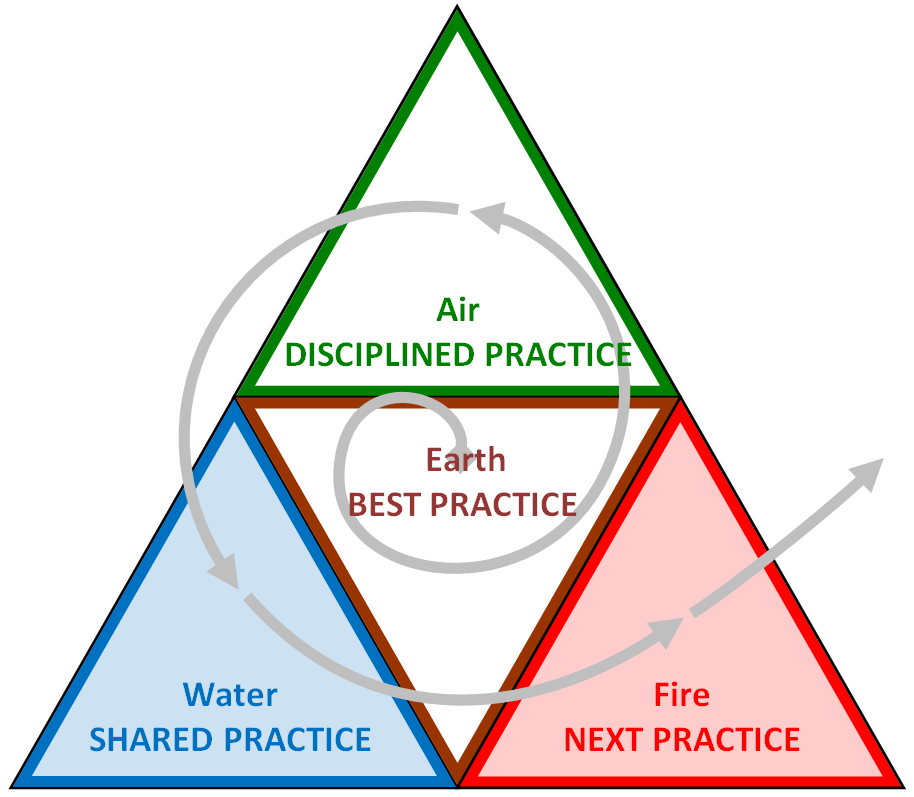
Value for Money (VFM) has been the age-old catch phrase for those who sought the best outcome, biggest return-on-investment, the most impressive win. Long before the age of COVID, those who noticed humanity's ethical slippage, sought healthier ways to define 'value', to measure the previously immeasureable. Rather than focussing on money, holistic thinkers measured how one evaluates emergence, the intangible, the metaphysical.
With ever-increasing acknowledgement and gratitude given to AI (Ancestral Intelligence) and Nature, the concept of value-for-money is shifting to the very much needed understanding of value-for-investment.
Value for Investment (VfI) was developed by Julian King based on his doctoral research and is an excellent, holistic approach that aligns well with Emérgéntly's Shared Practice and Next Practice... areas of high complexity and uncertainty. Best Practice and Disciplined Practice are seldom enough in todays' uncertainty. Let's learn to share more and leap into uncertainty with Ancestral Intelligence and reignited creativity and trust.
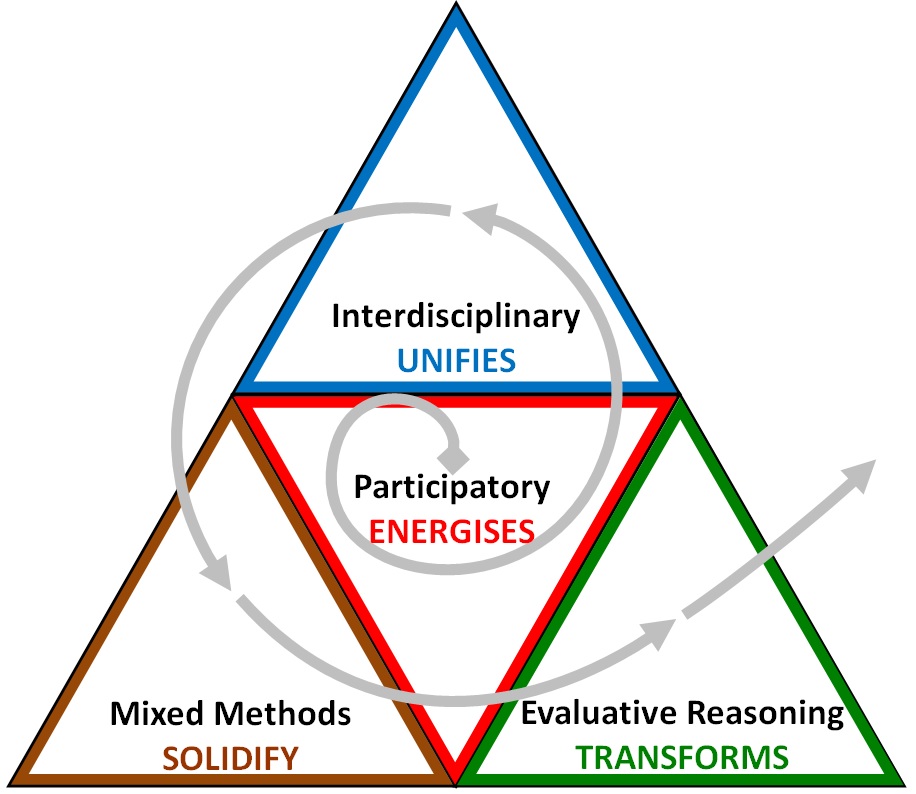 Julian King explains that the VfI system is underpinned by four principles:
Julian King explains that the VfI system is underpinned by four principles:
• Interdisciplinary (integrating theory and practice from evaluation and economics)
• Mixed Methods (combining qualitative and quantitative evidence)
• Evaluative Reasoning (interpreting evidence through the lens of explicit criteria)
• Participatory (engaging stakeholders in evaluation co-design and sense-making)
Applying an Emérgéntly spiral:
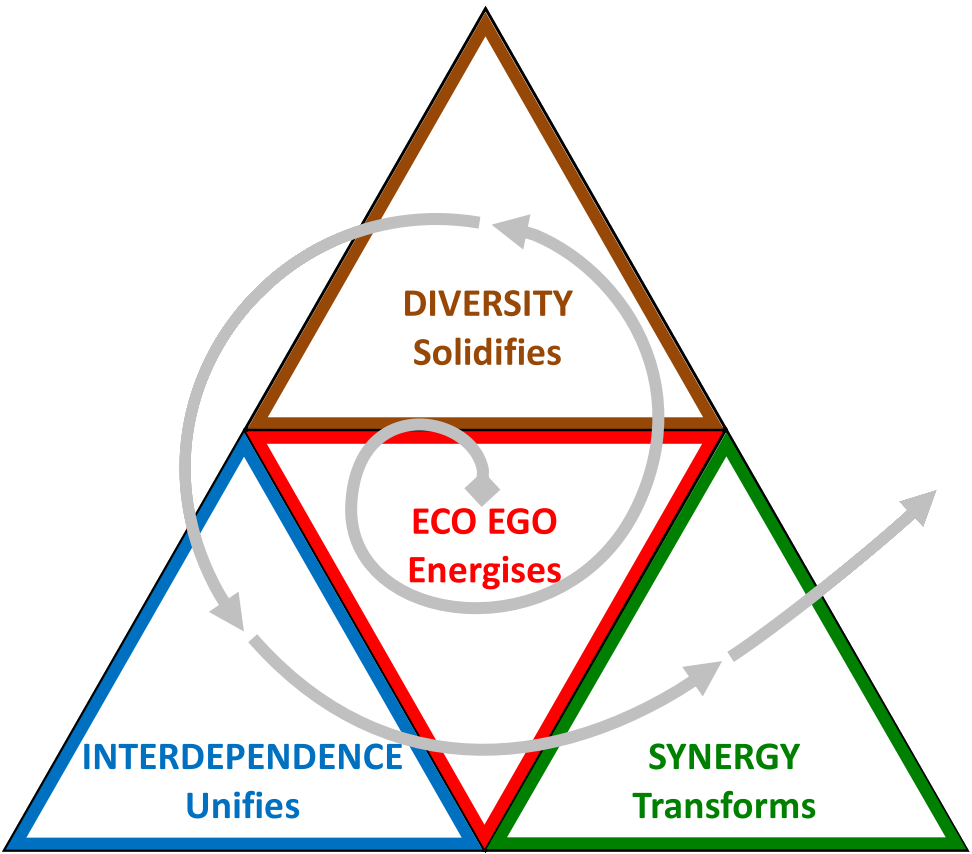 Valuing Emergence
Valuing EmergenceHow do we value the emergence of Synergy, where the whole is greater than the sum of the parts and therefore unpredictable? How do we come to understand the parts of a new system? Typically we value what appeals to our ego. The shift comes with valuing the benefits to the system within place (larger system). Understand the logic of the place, in order to be eco-logical and to develop a more Eco Ego.
Using the four sided tetrahedron as a metaphor for synergy, we can can show that one triangle, plus one triangle creates 4 triangles, but only if the two triangles hinge differently and then connect. Diversity (of hinging) and Interdependence (each triangle depending on the other to work together) are prerequisites for Synergy. Thus, although synergy cannot be predicted, we can predict that it is more likely to happen if we encourage diversity and interdependence. If we value collaboration and co-creation, we can trust that synergy will emerge.
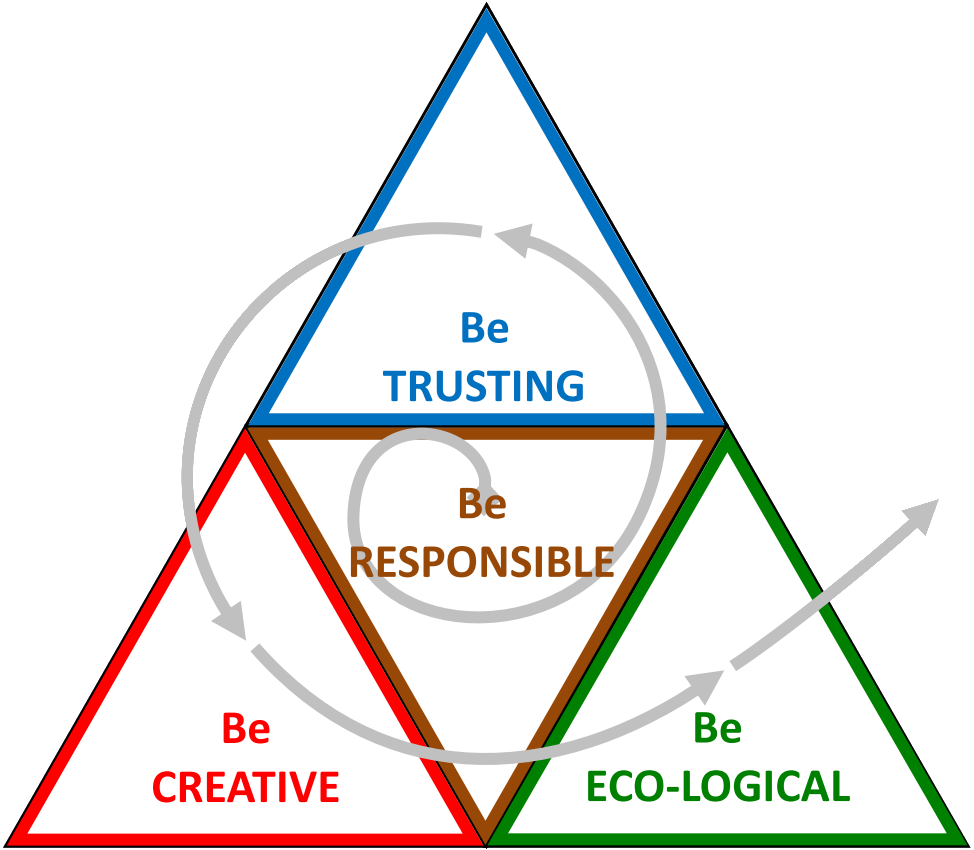 Long-term strategies should also anticipate the emergence of precession, or side effects, often called unintended consequences e.g. pollution. Positive precession is often called serendipity or synchronicity. Even though it is almost impossible to predict precession, we can confidently expect precession as a natural part of evolution, and therefore intentionally hope for serendipity. Also, precession often affects the wider context more than the specific program, as when the bee hunts for food, it precessionally pollinates the flowers.
Long-term strategies should also anticipate the emergence of precession, or side effects, often called unintended consequences e.g. pollution. Positive precession is often called serendipity or synchronicity. Even though it is almost impossible to predict precession, we can confidently expect precession as a natural part of evolution, and therefore intentionally hope for serendipity. Also, precession often affects the wider context more than the specific program, as when the bee hunts for food, it precessionally pollinates the flowers.
Of course, we should Be Responsible for our own actions, but can we also be responsible for the emergence of both positive and negative precession, especially as they can have far greater impact than our original intentions? To hope for positive precession in the wider context, we must Be Trusting in Nature and in the human nature of our collaborations. To be regenerative, we must also Be Creative and Be Eco-Logical, based on the logic of the place/context/system.
 Beyond Think Global, Act Local
Beyond Think Global, Act LocalThere is now an imperative to spiral success stories for regenerative growth (in quality, and probably not in quantity). In Next Practice especially, we learn from past mistakes, so the first imperative is to Learn Global. To limit the potential for negative precession we then Act Local and learn what works. The ego might be satisfied with local success, but an eco ego is energised to aim much higher. Today, local does not have to be geographical, so we use eco-logic to Redefine Local and identify where else any new learning could apply. Finally, to be truly transformational, we ensure the learning is shared and Impact Global.
If we value emergence and assume responsibility for emergence, we need to manage and measure it. Julian King's article on Evaluative reasoning in complexity gives an example of how to accommodate emergence of unplanned positive outcomes, integrated with evaluation of expected outcomes. However, there is the potential to retrospectively evaluate unplanned outcomes independently, and to anticipate this in evaluation proposals.
Nature spirals, peace emerges gently. Let's be more eco-logical in 2024.

|
|
Blog Archive |
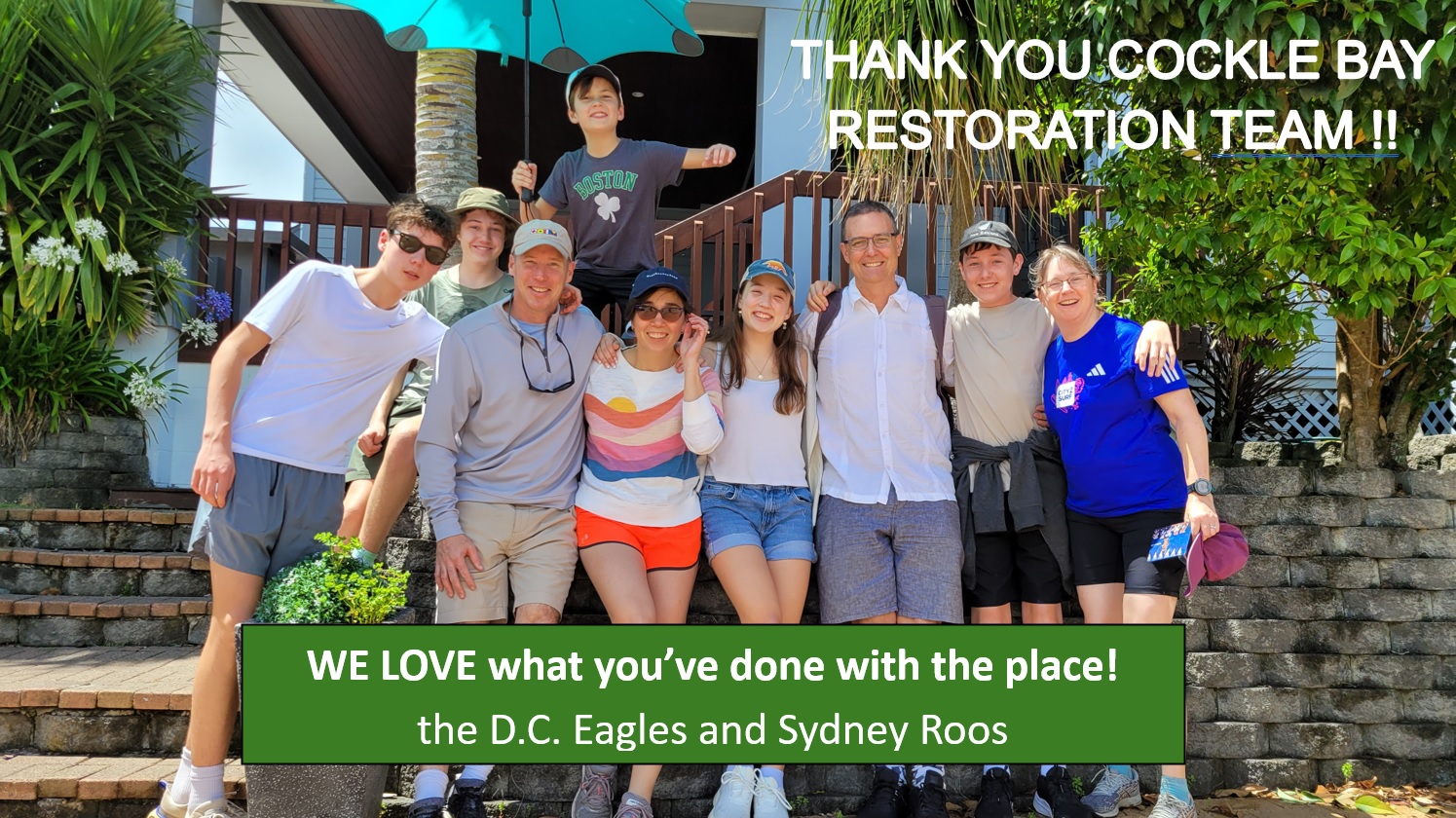  |
Flight Emissions & Gift 4 NatureYoshimi and Jon's Gift 4 Nature project effectively reduces flying by doubling the $cost, matching investment in Nature with investment in air travel (i.e. the cost of airfares). If we can afford an airfare plus matching investment in Nature, then we fly. If not, we don't wish to damage the environment for future generations, just to save ourselves a few dollars. |
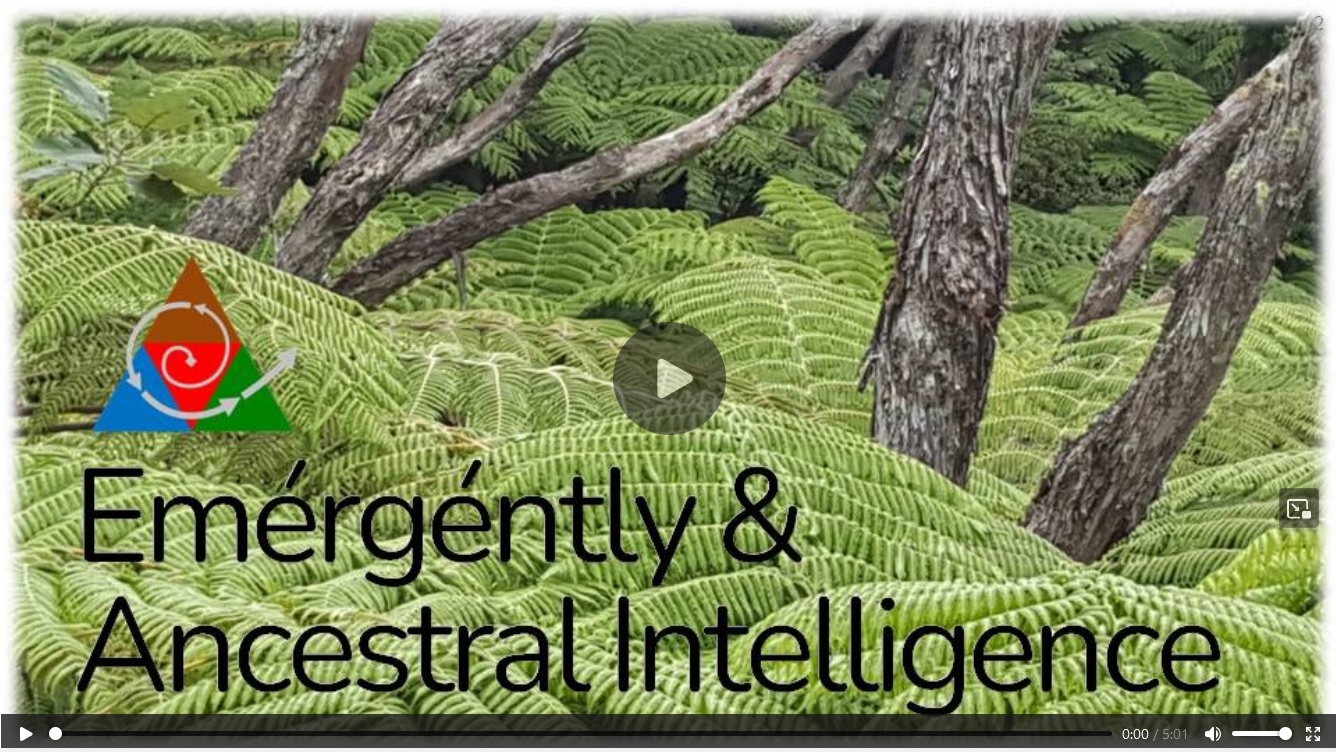 |
Emergence of AIJust as it is important to become "street-wise" in our car infested cities, we must become "info-wise" in our mis-information infested social media. From the Ancestral Intelligence perspective, "Mātāmua te Taiao – privilege the environment". Respect and work on the environment of the individual, team, organisation for the long term health of all of life. |
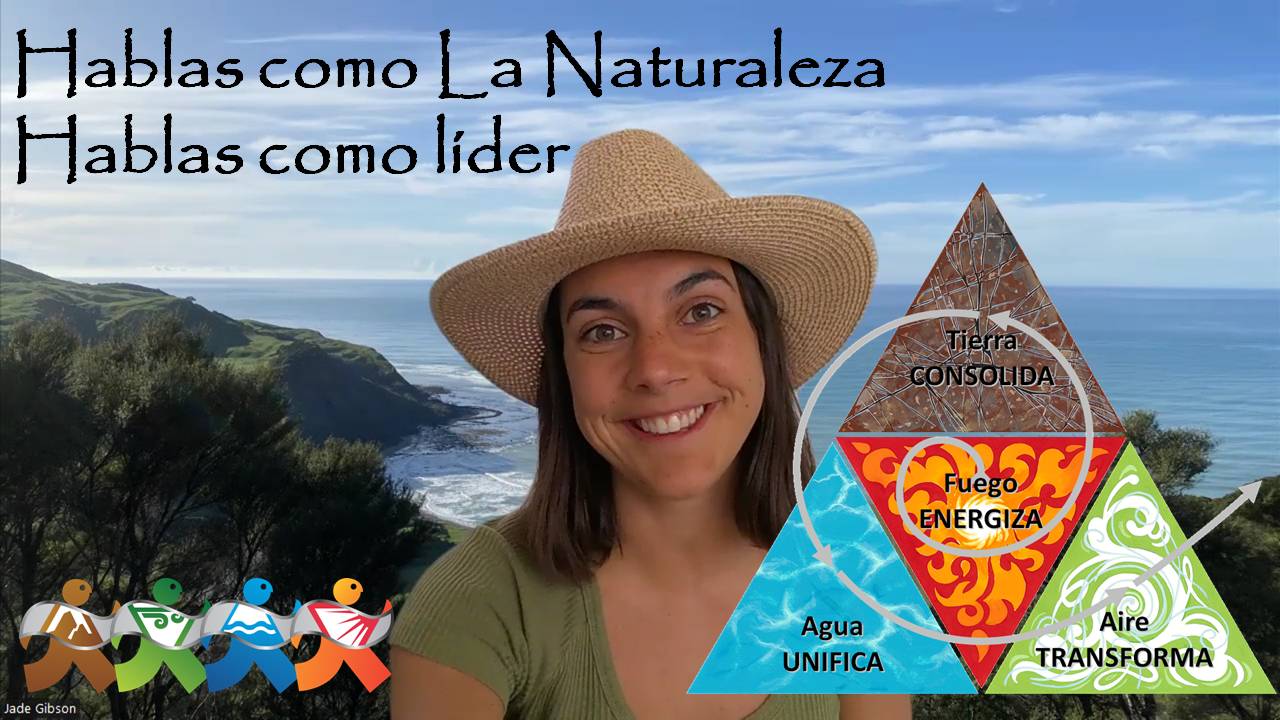 |
Emérgéntly Case Study in Mexican ConferenceThe case study is titled: Spiral into a Regenerative Future by Bridging Science & AI (Ancestral Intelligence). AI is a valuable resource, with Nature herself being the most ancient Ancestral Intelligence. |
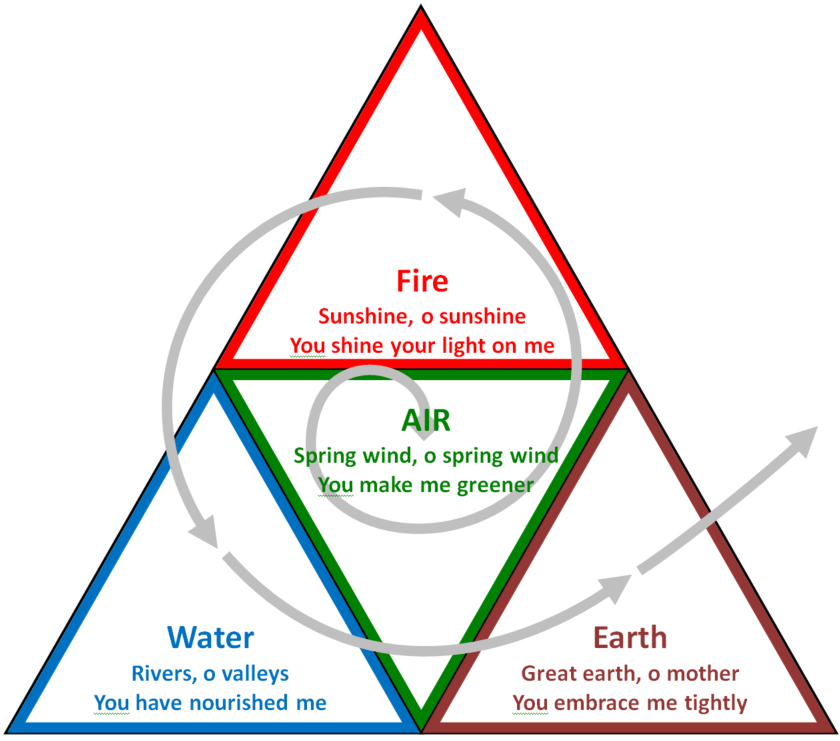 |
Inspiring Reminder of our RelationshipsA reminder of the relationship we have with each other and the relationship we have with our environment. |
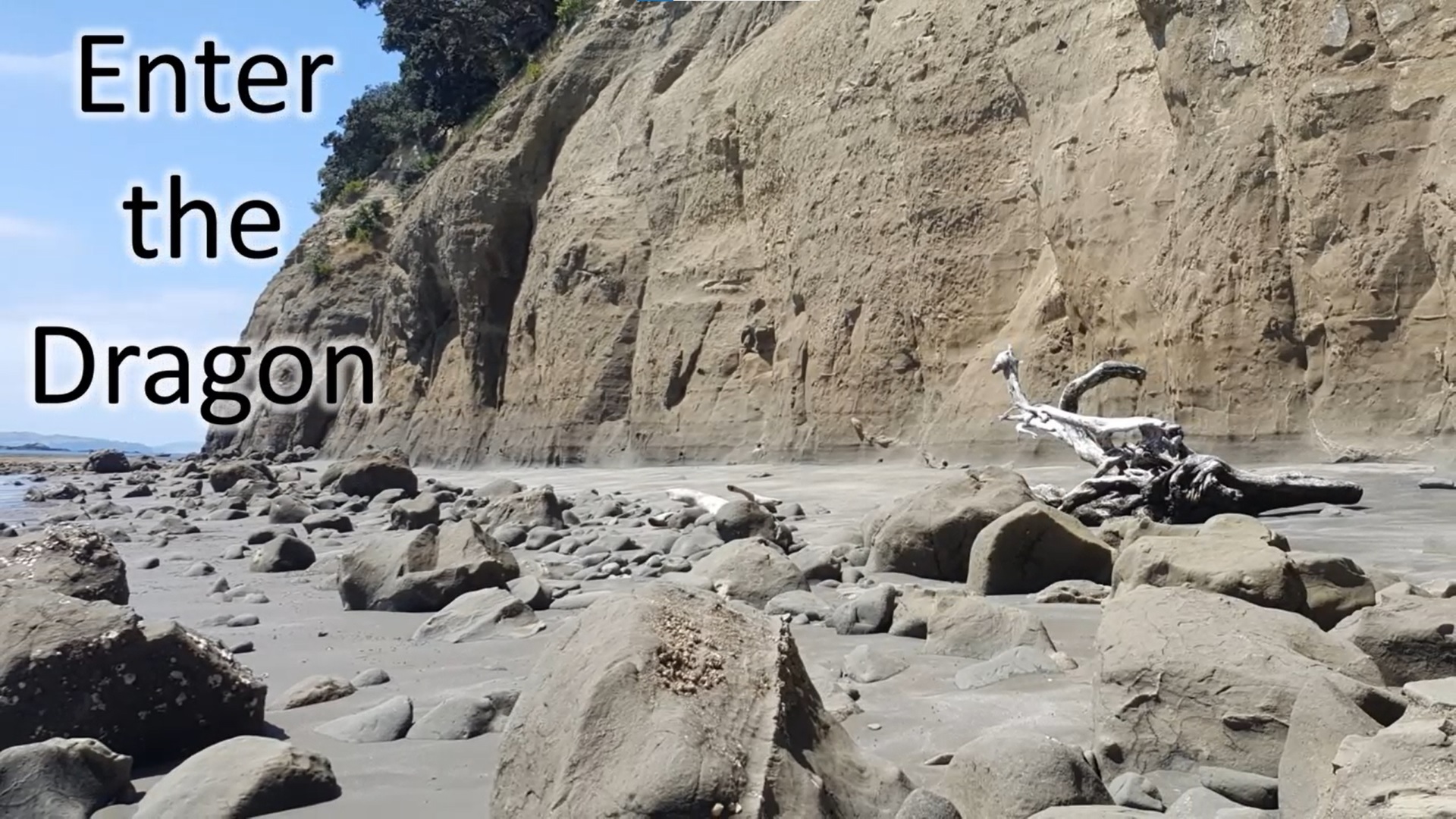 |
Year of the DragonWhat is a dragon? What is perception? Perhaps perception is just the process of creating a metaphor for reality. |
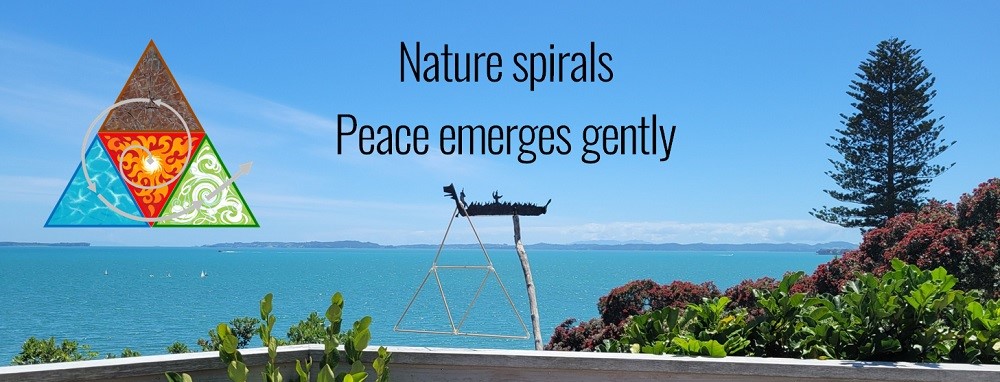 |
2024 Emerges GentlyNature spirals, peace emerges gently. Let's be more eco-logical in 2024. |
 |
Value for Investment, EmergentlyA discussion how to evaluate emergence, with reference to Value for Investment (VfI) as developed by Julian King based on his doctoral research. |
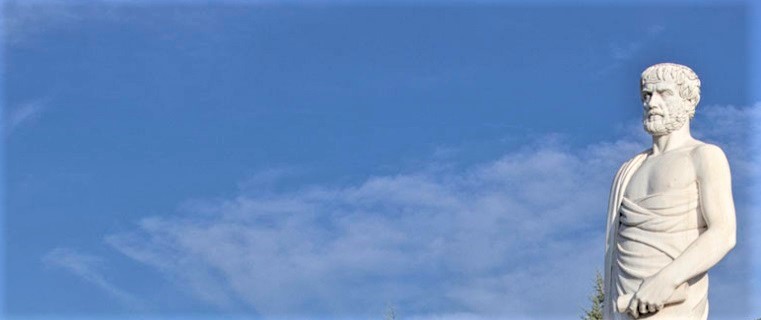 |
Context and PerspectiveMetaphor opens our minds to changing perspective AND context. Aristotle said being a master of metaphor is a sign of genius. Perhaps most indigenous teachers would agree. |
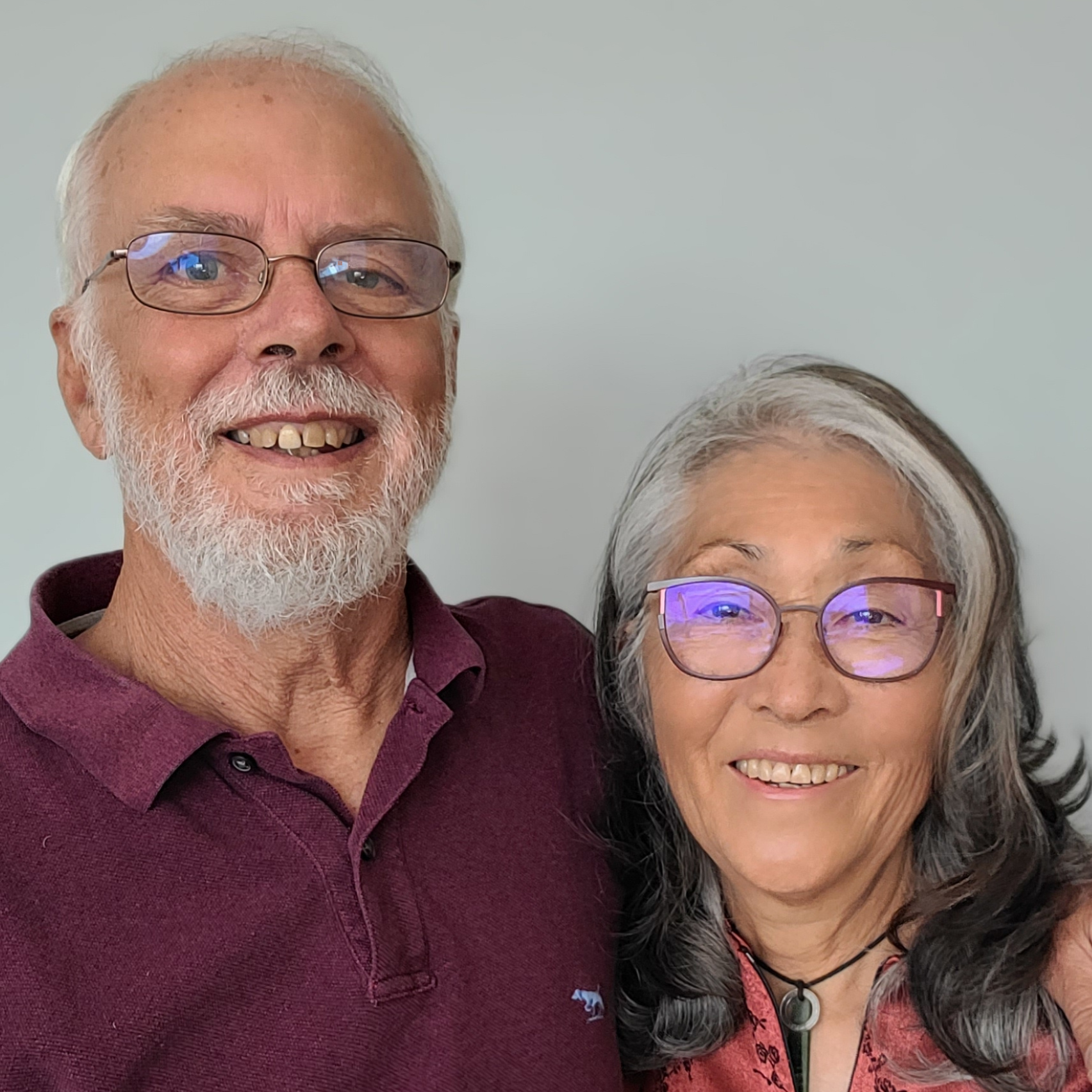 |
The Emérgéntly BackstoryA Short Essay by Jon Brett on the Genealogy of the Idea. This is a rough chronological cast of characters that have contributed to the development and evolution of ideas behind Emérgéntly. |
 Context and Perspective
Context and PerspectiveTwo words stand out for me in the movie Beautiful Mind, when Russell Crowe, playing the Nobel Laureate mathematician John Nash says:
Adam Smith said the best result comes,
from everyone in the group
doing what's best for himself, right?
That's what he said, right?
Incomplete, incomplete...
Those two words, incomplete, incomplete illustrate how our diverse world views, are only part of the picture, each just a unique perspective for the same context... or perhaps a unique context for the same perspective! How might we open our minds to changing perspective AND context?
One plus one is two, right? Incomplete, incomplete! Let's explore context...
For any statement, especially any dogma, we must ask, within what context? Adam Smith was both right and wrong. Nash challenges us to explore the context of the whole ecosystem as well as the perspective or logic. He challenges us to be eco−logical and consider not just what's best for me, but what's best for the whole system.
Indigenous knowledge emphasises the eco of eco-logical, and scientific knowledge emphasises the logical of eco-logical. Just a difference in context and perspective. Both kinds of knowledge are valid and both incomplete, incomplete! Can we open our minds to changing perspective AND context? Yes!
Jade Gibson's MSc dissertation Standing in Both Worlds: Exploring Hapū-led Biosecurity Management at Whareponga stands in both Indigenous and scientific worlds:
The research highlights the synergies and synchronicities between western scientific knowledge and Mātauranga and demonstrates how the holistic, interwoven nature of Mātauranga can be applied alongside western science to develop innovative solutions.
As we grow up, we strive for, typically ego-logical, self-sufficiency. Gradually, we realise self-sufficiency is incomplete, incomplete. We are all interdependent, where my success DEPENDS on your success. How can we be eco-logical and strive for shared-sufficiency?
Kataraina Pipi is a Kairukuwai, a facilitator of learning, growth and healing through music. Working towards her degree in Master of Applied Indigenous Knowledge she wrote and recorded Courageous Journey in which she sings:
Don’t be afraid, you can be yourself, let who you are, be your guiding star.
She speaks to the ego-logical youth, with the next verse adding a wider, eco-logical imperative for the village, the community:
It’s all about the next generation, for they know, what they know
The world will be a better place, when we find a way to claim the space for them…
We have a collective responsibility to find a way to model being eco-logical, caring for the space, the place, the home.
Andrew Melville's Masters of Management Studies dissertation title expresses the challenge:
Full of Holes or Full of Wholes? Exploring the Usefulness of Metaphor in Contemporary Aotearoa New Zealand Leadership
He explains, As a Pākehā researcher, I look to the natural world for metaphor to assist in navigating the complexity and unfolding nature of relationships between Te Ao Māori and the Pākehā world.
Of course, metaphor is incomplete, incomplete!, but metaphor opens our minds to changing perspective AND context. Aristotle said being a master of metaphor is a sign of genius. Perhaps most indigenous teachers would agree.
Metaphor, though incomplete, helps us to be eco-logical.
A discussion how to evaluate emergence, with reference to Value for Investment (VfI) as developed by Julian King based on his doctoral research.
Page 2 of 3